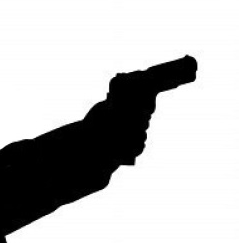Assassination of journalist, Suale is further indication of deterioration in democratic governance in Ghana
 The news last night January 16, 2019 of the shooting to death of investigative journalist, Ahmed Hussein Suale on his way home at Madina in Accra, is further indication of the deterioration of democratic governance in Ghana.
The news last night January 16, 2019 of the shooting to death of investigative journalist, Ahmed Hussein Suale on his way home at Madina in Accra, is further indication of the deterioration of democratic governance in Ghana.
It is no secret that the politicization of the state security apparatus has rendered law enforcement officers impotent and unable to apply the law when political party actors blatantly engage in lawlessness with impunity.
The 2017 Ibrahim Index of African Governance (IIAG) launched November 20, 2017 said over the last five years, Ghana has been showing signs of ‘Increasing Deterioration’ in overall governance.
The 2017 IIAG combines 100 indicators from 36 independent African and global data institutions, it analyses how the quality of governance across Africa has changed over the past five years (2012-2016) within the context of the last decade (2007-2016). All scores in the IIAG, it says are out of 100.0, with 100.0 being the best possible score.
The IIAG pointed out that over the same period, Africa’s annual average rate of improvement in Overall Governance has slowed. Of the 40 countries improving in Overall Governance during the last decade, more than half (22) have either done so at a slower pace in the last five years (i.e. Rwanda and Ethiopia) or show decline (i.e. Mauritius, Cameroon and Angola). Furthermore, eight of the 12 countries registering decline in Overall Governance over the past decade are showing no signs of turning things around, with scores decreasing at an even faster rate over the second half of the decade. This group includes Botswana, Ghana, Libya and Mozambique, it added.
“Over the last five years, Ghana shows signs of ‘Increasing Deterioration’ in Overall Governance. Ghana registered Overall Governance deterioration over the decade at an annual average trend of -0.17, with the pace of decline quickening in the last five years at an annual average trend of -0.70,” the Index said.
Presenting its assessment of the Akufo-Addo government in January 2018 at a one-day discussion, the CDD-Ghana, commenting on lawlessness, said while the Akufo-Addo government cannot be held responsible for introducing lawlessness in the country, it can be accused of not helping the situation and possibly aggravating it as well as undermining the rule of law.
“It stands accused for pampering ruling party law-breakers and offending footsoldiers and vigilantes and so, the expectation of enhanced rule of law, especially by government and the state being blind to party colours in the application of the law has so far remained unfulfilled,” the CDD-Ghana said.
Speaking at the one-day discussion, Prof. Emmanuel Gyimah-Boadi of CDD-Ghana said: “We note the government’s very weak and anaemic response to and seeming condoning of unlawful actions by militant ruling party insiders. Examples of which we don’t need to cite. All of them mark one of the lowest depths in upholding the rule of law in Ghana’s Fourth Republic.”
It is curious that the levels of lawlessness being witnessed in Ghana is happening under the leadership of a man with very highly commendable democratic credentials of belief in rule of law, human rights and justice, until he became president.
There is a case of a former Cabinet minister accused of forgery. He allegedly forged the will of a benefactor and took some of his properties. When the matter was reported to the police, despite the documentary evidence provided by the complainant, the police said perplexingly that they are unable to arrest the individual because of their political connection.
It is such lawlessness, linked to political affiliation that emboldens perpetrators such as the assassins of Suale.
Despite the strong constitutional acknowledgement of the importance of journalism and journalists to Ghana’s democratic process, journalists have not received the commensurate state protection in the pursuant of their duties. Examples abound of incidents of journalists being assaulted while on assignment, and often the perpetrators have been ruling party operatives.
The response, especially actions, of the Ghanaian public in response to this cowardly act on a dedicated and committed journalist who was serving the largest public interest, will serve as a litmus test to the readiness and willingness of the citizens to defend their rights to free expression and freedom of the press, which embody the overall freedom that all citizens are entitled to as enshrined in the 1992 Constitution of Ghana.
Ghanabusinessnews.com, while expressing our condolences to the family, friends and colleagues of Suale, and Ghana’s journalists, demand full investigation into the matter, including that the security services spare no effort to apprehend the executioners of this dastardly act and bring them to book.
Journalism is not a crime, and no journalist, should be punished for doing their job.
A ghanabusinessnews.com editorial
